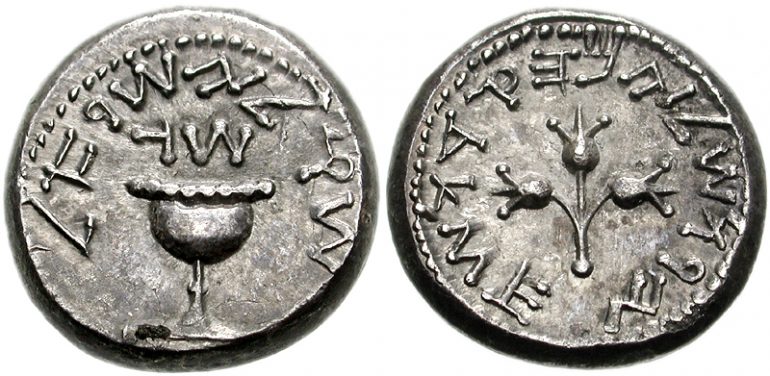Tax season is upon us. Not only do we read Form 1040 instruction manuals this time of year, but if you pay attention during this week’s Torah reading, you will see that we also read about a tax of more spiritual origins during Parshat Ki Tisa.
Each man is required to give one half shekel of silver as a “ransom for his soul,” Kofer Nafsho, in Hebrew. The money is supposed “to make atonement for your souls,” L’chaper Al Nafshotechem. Moses does not ask G-d what the Israelites have done wrong that they need to make atonement for their souls. Not to worry, they would go astray soon enough. No sooner does Moses returns from Mount Sinai with the tablets then he sees the people worshiping a golden calf. We could read this as an example of G-d’s foresight, requiring an atonement offering, knowing in advance that the people would sin. However, in looking at the apparently reversed timing of the half-shekel tax, the sin of the golden calf provides a potential strategy for preventing similar sins in the future.
In his book, “Predictably Irrational,” behavioral psychologist Dan Ariely writes about “hot states” and “cold states.” His example is spending money. In your “cool state,” you know that your goal is to save money, but in your “hot state,” you are tempted make a purchase that will satisfy you in the moment, even though you know it will detract from your true (cool) intention to meet your saving goal. For example, on Friday evening, you might say to yourself, “I do not want to spend $5 every day on coffee,” but when it is Monday morning, and you are in your “hot state,” you might think “I need coffee,” and spend the money anyway. In their cool state, the Israelites presumably would acknowledge that G-d brought them out of Egypt and that worshiping a golden idol would not be in their best interests. However, when Moses is gone for an extended period, the people allow themselves to get into a “hot state” of concern over whether Moses will return from the mountain, and they succumb to building the golden calf.
The half-shekel offering is to be used for “the work of the Tent of Meeting.” In other words, funding for religious services. By having a system of religious infrastructure in place, perhaps the people would have been less inclined to build the golden calf. The solution to the hot state-cold state conundrum is to plan for the hot state while you are in the cold state. For the spending example, Ariely cites the (perhaps drastic) solution of “freezing your credit card,” literally submerging your credit card in ice so that you cannot make impulse purchases. The half-shekel offering could have acted as a cold-state solution for the Israelites — had it been implemented ahead of time — heading off their temptation to worship a golden calf by providing for a fulfilling religious experience at the Ohel Moed, the Tent of Meeting. Today, there is a custom to give three half-coins, e.g. three half-dollar coins in the U.S., to the poor the day before Purim. Sometimes the money is used on the shul, but perhaps we should consider making a small additional donation to the synagogue.

